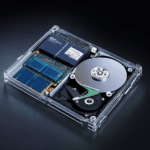“`html
Revolutionizing Innovation: Explore These Game-Changing Open Source Projects
Introduction
The concept of open source projects has been at the heart of innovation for decades. By allowing developers, researchers, and enthusiasts to freely access, modify, and distribute software, open source has become a cornerstone of modern technology. This collaborative approach fosters a global community of contributors who work together to create powerful tools and solutions that drive progress across various industries.
Open source projects are reshaping industries by democratizing access to cutting-edge technologies and fostering collaboration among developers worldwide. Whether it’s software development, artificial intelligence, data science, cybersecurity, hardware innovation, or education, open source is making a profound impact. In this article, we will explore some of the most impactful open source projects across various domains, showcasing their transformative potential and real-world applications.
Open Source for Software Development
In the realm of software development, open source tools have revolutionized the way code is written, tested, and deployed. Tools like Git, Docker, and Kubernetes have become indispensable for developers worldwide. Git, originally developed by Linus Torvalds, provides a robust version control system that allows teams to collaborate seamlessly on large projects. Docker, on the other hand, enables developers to package applications along with their dependencies into containers, ensuring consistent deployment across environments. Kubernetes, an orchestration platform for containerized applications, automates the deployment, scaling, and management of containerized applications.
These tools have transformed the software development lifecycle, making it more efficient and scalable. Companies like GitHub, Google, and Microsoft have embraced these open source tools, leveraging them to streamline their own development processes. For instance, GitHub uses Git to manage millions of repositories, while Google employs Kubernetes to run its cloud services. The widespread adoption of these tools underscores their importance in shaping the future of software development.
Open Source in Artificial Intelligence and Machine Learning
The field of artificial intelligence (AI) and machine learning (ML) has seen tremendous growth in recent years, thanks in large part to open source frameworks. Frameworks like TensorFlow, PyTorch, and Scikit-learn have democratized access to advanced AI technologies, enabling developers and researchers to build sophisticated models without requiring deep expertise in mathematics or computer science.
TensorFlow, developed by Google, is one of the most popular open source libraries for building and training machine learning models. It supports a wide range of tasks, from image recognition to natural language processing. PyTorch, developed by Facebook’s AI Research lab, offers dynamic computation graphs and a user-friendly interface, making it ideal for rapid prototyping. Scikit-learn, a library for Python, provides simple and efficient tools for data mining and data analysis, particularly suited for beginners.
Real-world applications of these frameworks include facial recognition systems, autonomous vehicles, and personalized recommendation engines. Companies like Tesla, Amazon, and Alibaba have successfully integrated these open source tools into their products and services, demonstrating their practical value. The availability of these frameworks has also spurred innovation in academia and startups, fueling the rapid advancement of AI and ML technologies.
Open Source for Data Science and Analytics
Data science and analytics have become critical components of modern business strategies, and open source tools have played a pivotal role in enabling efficient data processing, analysis, and visualization. Essential tools like Apache Spark, Pandas, and Jupyter Notebook have transformed the way data scientists approach complex problems.
Apache Spark, a fast and general-purpose cluster computing framework, provides APIs in Java, Scala, Python, and R for easy data manipulation and analysis. It can handle large datasets with ease, making it ideal for big data applications. Pandas, a Python library, offers powerful data structures and data analysis tools, simplifying data wrangling and exploration. Jupyter Notebook, an interactive environment for creating and sharing documents containing live code, equations, visualizations, and narrative text, has become a go-to tool for data scientists and researchers.
Cases in point include the use of these tools in healthcare, finance, and retail. For example, hospitals use Apache Spark to process large volumes of patient data, enabling personalized treatment plans. Financial institutions leverage Pandas and Jupyter Notebook to analyze market trends and optimize investment strategies. Retailers employ these tools to gain insights into customer behavior and improve sales forecasts. These examples illustrate the transformative power of open source tools in the field of data science and analytics.
Open Source in Cybersecurity
Cybersecurity has become a top priority for organizations worldwide, and open source tools have emerged as powerful allies in the fight against cyber threats. Tools like Metasploit, Wireshark, and Nmap have contributed significantly to enhancing security measures and promoting ethical hacking.
Metasploit, an open source penetration testing framework, allows security professionals to identify vulnerabilities in networks and systems. Wireshark, a network protocol analyzer, helps analysts capture and analyze network traffic, providing valuable insights into potential security breaches. Nmap, a network scanning tool, assists in discovering active hosts and services on a network, facilitating comprehensive security assessments.
Organizations across various sectors, including finance, healthcare, and government, rely on these open source tools to protect their systems and data. By leveraging these tools, they can detect and respond to threats more effectively, ensuring the integrity and confidentiality of sensitive information. The collaborative nature of open source projects ensures that these tools are continuously improved and updated, keeping pace with evolving threats.
Open Source for Hardware and IoT
The rise of the Internet of Things (IoT) has sparked a wave of innovation in hardware design and development, and open source hardware platforms have played a crucial role in enabling rapid prototyping and innovation. Platforms like Arduino, Raspberry Pi, and BeagleBone have become go-to tools for hobbyists, engineers, and entrepreneurs alike.
Arduino, a microcontroller-based platform, offers a simple and affordable way to build interactive electronic devices. Its easy-to-use programming environment and vast community support make it ideal for beginners and experienced developers alike. Raspberry Pi, a credit-card-sized single-board computer, provides a low-cost solution for building IoT devices, media centers, and more. BeagleBone, another single-board computer, offers a more powerful alternative with onboard Ethernet, HDMI, and USB ports.
Innovative projects built on these platforms include smart home systems, wearable devices, and environmental monitoring stations. For example, Arduino-based sensors can be used to monitor air quality, while Raspberry Pi-powered cameras can be employed for home surveillance. These examples demonstrate the versatility and potential of open source hardware platforms in driving innovation in the IoT space.
Open Source in Education and Research
Education and research have also benefited greatly from open source tools and resources. Open source educational tools like Jupyter Notebooks, RStudio, and open-source textbooks have facilitated learning and research in various fields. Jupyter Notebooks, an interactive computing environment, allows users to create and share documents that contain live code, equations, visualizations, and narrative text. RStudio, an integrated development environment for R, provides a user-friendly interface for statistical analysis and data visualization.
Open-source textbooks, available through platforms like OpenStax, offer high-quality educational materials at no cost. These resources have democratized access to knowledge, making it possible for students and educators worldwide to learn and teach without financial barriers. Successful educational initiatives and research projects have leveraged these tools to enhance learning outcomes and advance scientific discovery.
Conclusion
In conclusion, open source projects have had a profound impact on innovation across various sectors. From software development to artificial intelligence, data science, cybersecurity, hardware innovation, and education, open source has democratized access to cutting-edge technologies and fostered collaboration among developers worldwide. The collaborative nature of open source ensures that these tools are continuously improved and updated, keeping pace with evolving needs and challenges.
By encouraging transparency, openness, and community involvement, open source projects have accelerated technological advancements and driven progress in countless areas. As we look to the future, the continued growth and evolution of open source will undoubtedly play a crucial role in shaping the next generation of innovations. We encourage readers to explore and contribute to open source projects themselves, joining the global community of innovators and collaborators.
“`


